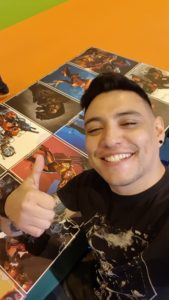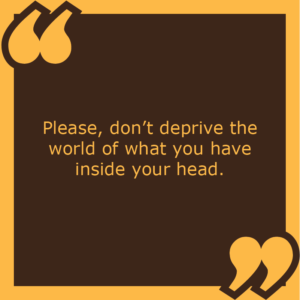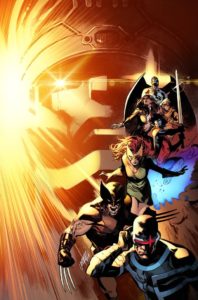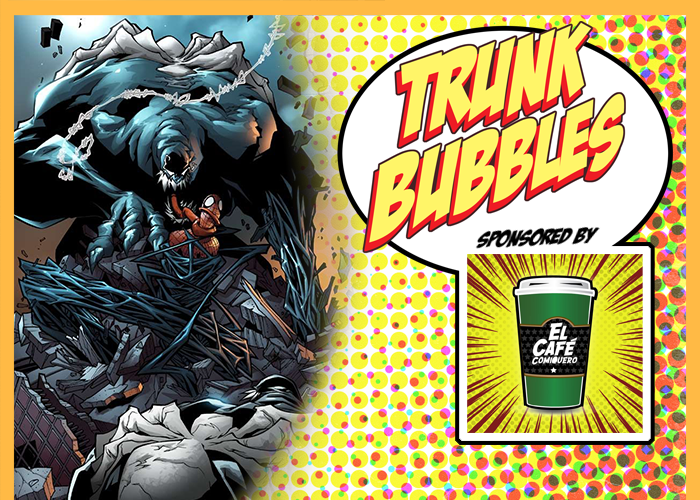 Name: Marte Gracia
Name: Marte Gracia
Marte Gracia is one of the top colorists at Marvel, and we had the chance to sit down and talk a little bit about his career, his love for the medium and much more!
Perhaps this is a question you’ve been asked hundreds of times, but I’d love to ask anyway: Why do you love comic books?
What a nice question! When I was very young, on our way home from the kindergarten –which was within walking distance from our house – we used to pass in front of a newsstand, and my parents bought me any comic book available to keep me entertained, normally three times a week. Spider-Man was a regular, some Batman books, and a Mexican comic book called Karmatron, among many others. I have three older brothers, who loved comic books as well, and as I grew up, I discovered their books, so I read all kinds of comics: from younger reader’s appropriate comics to more “adult” stuff. By the time I was 10 years old, I was already reading Heavy Metal!
There was a breaking point in my life, in which I decided I wanted to make comics as a living. In the late ‘80s – early ‘90s? – there was an anthology book in Mexico called Spider-Man Presents, a biweekly book featuring reprints of different American titles, such as Fantastic Four and Avengers, along with additional content like a letters’ page, articles, etc. One day, they started to print two or three pages per issue of the famous “How to Draw Comics the Marvel Way” by Lee and Buscema. I collected every issue, cut out the pages and made my own manual. That was the spark I needed.
How did you break into the world of comic books?
During the ‘90s there was a huge boom for comic books in Monterrey, Mexico – where I still live to this day – that inspired a lot of people to create their own comics. Take Cygnus Studios, for example, and many other fine folks, like Dono Sanchez, Francisco Ruiz Velasco and Edgar Delgado. I started hanging around in a small local publisher, called “Neurona C” along with some of those guys, and later I got a job in a marketing studio, doing commercial illustration. We did storyboards, text books… the works. At some point, the owner ended up owing me a lot of money, and she said: “What would you say if instead of money, I print a comic book for you?” And I said yes, and that way I self-published my first comic called Chuck, which in hindsight was not very good. (Laughs) It had a very dark sense of humor, in the vein of Johnny: The Homicidal Maniac, by Johnen Vazquez.
create their own comics. Take Cygnus Studios, for example, and many other fine folks, like Dono Sanchez, Francisco Ruiz Velasco and Edgar Delgado. I started hanging around in a small local publisher, called “Neurona C” along with some of those guys, and later I got a job in a marketing studio, doing commercial illustration. We did storyboards, text books… the works. At some point, the owner ended up owing me a lot of money, and she said: “What would you say if instead of money, I print a comic book for you?” And I said yes, and that way I self-published my first comic called Chuck, which in hindsight was not very good. (Laughs) It had a very dark sense of humor, in the vein of Johnny: The Homicidal Maniac, by Johnen Vazquez.
Once I finished college, around 2002, I started working with Studio F. They were already working for American publishers, I used to hang around with them, and that was when I got intrigued by the work of a colorist, and I decided there and then that that was my thing. I dedicated myself to learn Photoshop like crazy, until one day, Dono Sanchez emailed me saying they’ve got too much work from Marvel and they needed all the help they could get. They sent me four pages from four different artists and said “Well, rock and roll!” I painted all four pages and they liked them because – as I was told later – I tried to paint every page according to each artist’s style. That’s how I got to work with Studio F. One of my first assignments was helping Edgar Delgado coloring some pages for a Venom regular series (penciled by Francisco Herrera). I was not credited in that book, though, but I learned a lot from Edgar. He was my teacher and guide, he led me to the right places using nice and hard words when needed, I owe that guy a lot and I’ll always love him.
What was your first solo work as a colorist?
My first solo book was Hell published by Dark Horse Comics through an imprint called Rocket Comics. That’s curious. I think that’s my only professional work outside of Marvel.
My first Marvel book was Marvel Team-Up, with Robert Kirkman and Scott Collins. I had a lot of fun with that book, but now I look at those pages and I go “jeez!”. (Laughs) I remained in that book until #37. During that run I got the chance of working with people like Paco Medina and Juan Vlasco (RIP).
 Which artists do you feel more comfortable to work with?
Which artists do you feel more comfortable to work with?
Aside from Stuart Immonen – one of my all-time favorites – I’m blessed for working with Pepe Larraz and R.B. Silva. It was a blast working with them in House of X / Powers of X. Pepe and I are working on X of Swords and I’m loving it. I also enjoyed coloring Joe Madureira in Inhumans, where we did some really cool visuals. And even though I’ve only done a couple of covers, I feel in awe when I color Ryan Ottley.
In your own words, what does a colorist do in terms of comic books?
That’s a beautiful question. You see, the goal of every cartoonist is to tell a story in the best possible way, without your work being noticed for getting in the way of the story. My job is very similar to that of a Director of Cinematography in movies. I need to tell a story using colors as a baton for feelings and emotions, trying to keep consistency between what’s going on in the page with the colors I choose. For example, If I paint a funeral, I will use colors suited for the mood of the scene, maybe muted or darker. But perhaps the most important thing is to guide the reader to the most important parts of both the panels and the page, by using color values, lights and shadows, to enhance what we want the reader to see. If you look at a page, filled with colors and textures and you don´t get lost, if you are immediately aware of who’s talking or doing something, if your eyes are drawn to where they need to be, then we can say both the artist and the colorist did a good job.
What advice would you give another young aspiring artist who is considering a career in the comic industry?
Just one thing: please, don’t deprive the world of what you have inside your head. Make comics. Write if you are a writer. Draw if you are an artist. If you do inks or colors, keep it going. But please, don’t let the world miss on what you have to offer. Share your stuff with the world. There are more comics to make, more stories to tell, because this is the most beautiful thing in life.


